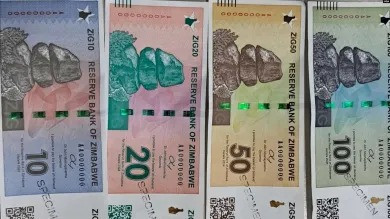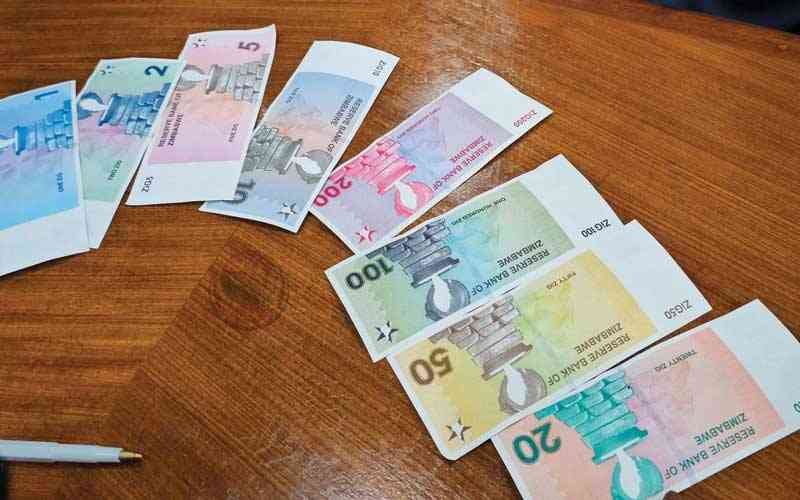
By Fred Zindi
Have you heard of tall poppy syndrome? If not, I shall explain. If you are popular, famous or successful, you are bound to have people who just hate you for no good reason.
In Zimbabwe, there is a toxic social phenomenon that impacts almost every successful or fledgling artiste.
It’s a tendency to cut others down for their achievements. There is so much envy, so much jealousy, and so much cutting down of others who seem to be doing so well in life.
To criticise or undermine those who display their difference, originality, ambition or unique talent for no better reason seems to be the norm in this country.
It’s a cluster of envy, low self-esteem, fear and resentment that compels people to do so..
This phenomenon of trying to cut others down for their achievements is called tall poppy syndrome.
Last month, on June 26, Marshall Shonhai, a well-known music critic and a Facebook blogger, in one of his Facebook posts wrote: “Ex-Q and Nutty O as well as producer DJ Tamuka appeared at the Harare Magistrates Court yesterday after they were arrested at the Robert Gabriel Mugabe International Airport for faking Covid-19 test results. They were coming from South Africa. The trio will spend the weekend behind bars at Harare Remand Prison after the presiding magistrate deferred their bail hearing to Monday June 28, 2021.”
- Chamisa under fire over US$120K donation
- Mavhunga puts DeMbare into Chibuku quarterfinals
- Pension funds bet on Cabora Bassa oilfields
- Councils defy govt fire tender directive
Keep Reading
That statement gives the impression that these three, Ex-Q (real name Enock Munhenga), Nutty O (real name Carrington Simbarashe Chiwadzwa) and DJ Tamuka aka TamukaMakuluni, were already guilty of faking Covid-19 test results. But were these Covid-19 certificates really fake or was this just a set-up?
However, it must be pointed out that the statement should have read “for allegedly faking Covid-19 test results”. They have not been tried yet. The courts have postponed the case on two occasions.
The public, on reading this post, was quick to react and all sorts of negative comments started to pour in.
One read:”If those people can afford plane tickets, why do they have to buy fake certificates?”
Another read: “Who do these people think they are fooling? Pretending to be streetwise superstars when they are not.”
Still more comments came from other artistes. Here are a few examples:
Willis Wataffi: “They must join our union. We stand with you guys, but that’s irresponsible.
Dorcas Chamatunhu had this to say: “Fake results is an unfair practice. Imagine 97% of people in the plane will be assuming everyone is negative! Let’s continue masking up guys wherever we are and be responsible for our lives and others.”
Bruce Bodyslam Cheva says: “I believe these guys need to be educated. It’s not about the safety of them alone, but their children and wives will be at risk because they didn’t want to part with R300.”
Irvine Matikiti commented: “An embarrassment to this country. The sad affairs of a broken country, our artistes should be able to afford to pay for a Covid-19 test.”
One could tell the amount of hate that was being delivered by such comments.
In fact most of the commentators had tried, judged and convicted these three before they had even appeared before a magistrate to give their side of the story.
I would have assumed that these three artistes being representatives of the Zimbabwean culture, would get a lot of support from their followers since they were putting Zimbabwe on the international map. But that is not the case with most Zimbabweans.
This lack of support can severely impact on the mental health of any creative artiste.
I recently spoke to Ex Q. about this case and he expressed his innocence about the whole thing.
“I think we were simply targeted by our haters as three popular Zimbabwean artistes. The haters just didn’t like us travelling to South Africa during these Covid-19 times. They were simply jealous. The company that hired us to give performances in South Africa had arranged everything.
“They simply gave us travel documents which were to be used to enter and leave South Africa. We did not look at them twice. On leaving South Africa, we went through Oliver Tambo Airport. Those documents were scanned and were seen to be genuine. There was no hassle at all until we reached Robert Gabriel Mugabe Airport in Harare. We were told to stand aside by local immigration officers and CID who all seemed to know us and then we were told that we were under arrest.
“The three of us were completely in the dark about what crime we had committed. We were then taken to a nasty and smelly remand prison for two days where one of the prison officers was bragging: ‘There is nothing special about you guys. Even former Finance minister Ignatius Chombo slept here’.
“We then went to court after two days and we were granted bail, but they kept our passports. I was supposed to do a performance in Poland this week, but I can’t go because my passport has been confiscated. I think the three of us were simply made sacrificial lambs by our haters because we travelled during Covid-19 restrictions. That is my thinking.”
There is a carpenter’s saying: “The nail that sticks out is hammered down.” That seems to be what happened to these guys.
While tall poppy syndrome may stem from a distinctly cultural narrative, it is deeply rooted in colonial values of egalitarianism or the ‘fair go’ mentality. It can have devastating effects on individuals, particularly when it comes to creative pursuits.
It is often when popular artistes delve into politics that they divide their followers, thus creating haters among them. Remember how Winky D got into trouble with his Kasong KeJecha?
I also remember in 2017, JahPrayzah experienced a similar incident at Glen Forest Cemetery when he was attacked by haters after he went to bury his former bouncer, Chrispen Nyemba.
I spoke to several people who were present during the burial of Nyemba at Glen Forest Cemetery and they gave me different reasons for the attack on Jah Prayzah.
Some said it was due to the fact that Jah Prayzah did not contribute anything towards the funeral expenses of his former security staff.
Others said it was because Jah Prayzah had arrived late and his security staff asked everyone present to get out of the way so that he could get to the front.
Yet others said that Jah Prayzah owed Nyemba three months’ salary and the family was angry about this.
A few others said that Jah Prayzah is a very arrogant person and had now delved into Zimbabwe’s politics as evidenced in the release of Mudhara Vachauya and Kutonga Kwaro albums.
Simply put, they just didn’t like Jah Prayzah’s achievements. The tall poppy syndrome rearing its ugly head again.
After a careful analysis of these statements, I decided to confirm with Keen Mushapaidze, Jah Prayzah’s manager, if any of these statements were true. He dismissed them all and had this to say:
“I am not sure where these people are getting these statements from or what the motive behind that attack was. We paid Nyemba his full dues after he appeared before a disciplinary hearing where he and two others were accused of pocketing some of the Third Generation’s door-takings. We set a trap after reports of several incidents of the same nature had reached us and he was caught red-handed.
“Jah Prayzah and I decided to fire him. But as you are aware, some people when sacked from work do not always tell their families the truth. Perhaps this is where ‘I am owed money’ was coming from. We kept in touch with him even after his dismissal.
“Only a week after the Kutonga Kwaro album launch, he phoned Jah Prayzah and said, ‘Nice album Mudhara’ and Jah Prayzah responded with a thank you. We felt it was our duty to be supportive of a former employee by attending his funeral. If we were not friends, we could have chosen not to go to his funeral.”
“Regarding the political connotations about the albums, this is pure coincidence. Jah Prayzah has never set out to record a political album. People have their different ways of interpreting his lyrics.
“I looked at the reasons for the attack once again and decided that all of them were frivolous. These people were not serious. Up to now I feel utter revulsion at these people. I do not have words to adequately express this grotesque barbaric behaviour,” he said.
I do not feel obliged to believe that the same God who has endowed us with sense, reason and intellect has intended us to forgo their use, but this is what happens with the tall poppy syndrome.
To all the haters, I say shame on you. I hope they will all crawl back under the rock from which they emerged.
My feeling is that these attackers were consumed by jealousy.
Jah Prayzah was simply making waves and celebrating his success, but the Zimbabwean mentality does not allow that and the tall poppy syndrome comes in very strong.
Celebrities who have experienced the tall poppy syndrome include Jesus Christ who was judged harshly for having whores and thugs as followers. He was crucified between two thieves.
Bob Marley, in Jamaica, was targeted by warring gunmen after he performed for Michael Manley’s People’s National Party. It looks like it’s impossible to avoid haters once one becomes a successful achiever.
- Feedback: [email protected]











